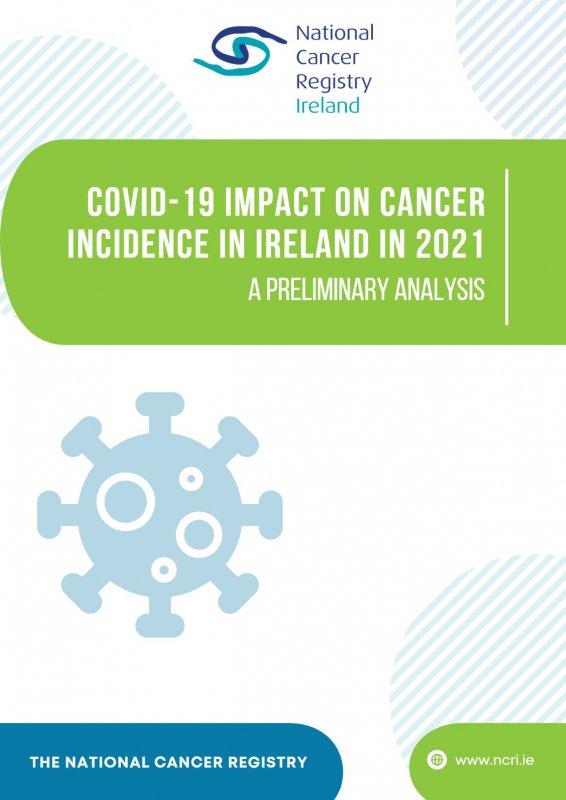Preliminary data indicates COVID-19 disruption to cancer diagnoses continued in 2021
The National Cancer Registry Ireland (NCRI) has today published a report entitled: COVID-19 impact on cancer incidence in Ireland in 2021: a preliminary analysis.

These findings are based on registered and projected cancer cases in 2021, using data available in March 2023. NCRI expects to publish a more definitive update on 2021 case numbers later this year.
The report can be found here
Key findings:
- Preliminary data on the impact of the COVID-19 pandemic indicates that the number of cancer cases diagnosed in 2021 was down 1,665 cases or 6% lower than projected.
- This is a smaller shortfall in diagnosis than the 10% observed in 2020.
- Colorectal, female breast, and cervical cancer case numbers, which were notably impacted by the COVID-19 pandemic in 2020, returned to expected case numbers in 2021.
- Liver, pancreatic and kidney cancers appear to have been most significantly impacted by the disruptions that occurred due to COVID-19.
- The combined number of diagnosed cancers during 2020 and 2021 was down 4,320 cases or 8% lower than projected.
Further collaborative work is ongoing to assess the impacts of COVID-19 related disruption on cancer services and outcomes in Ireland.
This NCRI report, is an output of a research collaboration with the RCSI University of Medicine and Health Sciences, funded by the Irish Cancer Society.
“The impact of COVID-19 on the health of the Irish population is anticipated to have a long tail as its effects on the diagnosis and management of non-communicable diseases become apparent. While cancer survival rates continue to improve, the incidence of most cancers increases with age. People aged 65 years and older formed the largest cohort of COVID-19 deaths in Ireland, so it is possible that some may have died before being diagnosed and treated for cancer.” Professor Deirdre Murray, Director of the National Cancer Registry
“The Irish Cancer Society is dismayed that our fears of there being a second year of fewer cancers being diagnosed have been confirmed. Cancer never went away during the pandemic but remained undetected due to a range of reasons including putting off seeking medical advice, disruption to health services and possibly death from Covid. Until we see data that shows the number of cancers diagnosed have returned to expected levels, the Irish Cancer Society will continue to call for urgent and accelerated measures from Government that get people diagnosed in the first instance and secondly, that ensure swift access to cancer treatment.” Rachel Morrogh, Director of Advocacy & External Affairs at the Irish Cancer Society
Share this page